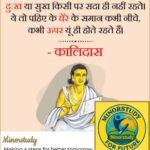🏹 Introduction: The Forgotten Power Epic — Kiratarjuniyam
Kiratarjuniyam: In the rich world of Sanskrit literature, certain epics don’t just tell stories—they challenge the soul, question pride, and awaken humility. One such work is Kiratarjuniyam, written by the legendary poet Bharavi. Rooted in the Mahabharata, it isn’t just a tale of valor—it’s a deeply philosophical and linguistic masterpiece.
Kiratarjuniyam portrays an iconic episode where Lord Shiva, disguised as a Kirata (hunter), tests Arjuna, the Pandava prince. Their confrontation is not merely physical—it’s a test of ego, spiritual discipline, and inner strength.
📜 History of Kiratarjuniyam
-
Author: Bharavi
-
Era: Estimated 6th century CE
-
Language: Classical Sanskrit
-
Structure: Mahakavya (Grand Epic) in 18 cantos (sargas)
-
Based on: Mahabharata (Vana Parva) episode
Bharavi was one of the greatest classical Sanskrit poets, and Kiratarjuniyam is his only surviving work. Despite its singularity, it earned him immortality in Indian literary tradition.
This Mahakavya draws from the Vanaparva (Book of the Forest) of the Mahabharata, where Arjuna, during his exile, seeks divine weapons through penance. Shiva tests his resolve by appearing as a tribal hunter, challenging and eventually blessing him.
📅 Timeline of Kiratarjuniyam
| Period | Event/Development |
|---|---|
| ~550–600 CE | Bharavi composes Kiratarjuniyam |
| 600–800 CE | Gained popularity in South Indian courts and academic circles |
| 1000–1500 CE | Widely studied in Sanskrit pathshalas (traditional schools) |
| 1600s onwards | Commentaries written by scholars across India |
| Present Day | Studied in classical Sanskrit courses, often cited for style |
🔍 12 Fascinating Facts about Kiratarjuniyam
-
Bharavi was known for his depth of thought more than ornamental style.
-
The title means “The Story of the Hunter and Arjuna.”
-
The Kirata is none other than Lord Shiva, disguised to test Arjuna.
-
It contains 18 cantos, like the 18 chapters of the Gita or 18 days of war.
-
Famous for its grammatical complexity and poetic power.
-
The epic is more philosophical than dramatic—a rare trait.
-
Verse 15.18 is famously cited for its linguistic intricacy.
-
Emphasizes Tapas (austerity) and inner discipline.
-
Bharavi’s use of compound words and meter is exceptionally challenging.
-
Kiratarjuniyam influenced later poets like Magha and Kalidasa.
-
It’s often part of postgraduate Sanskrit curricula.
-
Highly regarded for its blend of Shiva devotion and warrior ethics.
🙏 Significance of Kiratarjuniyam
Kiratarjuniyam is not merely an epic battle. It’s an exploration of:
-
Spiritual Testing: True strength is tested when the ego is challenged.
-
Human vs. Divine: Even the mightiest must surrender before the divine will.
-
Penance and Reward: Arjuna’s success is not from valor, but from self-control and discipline.
-
Shiva’s Grace: Divine intervention happens only when ego is shed.
-
Language as Power: Bharavi crafts language as a mirror to inner states—bold, refined, unrelenting.
It also showcases the ideal student-hero archetype—committed, focused, and open to transformation.
❓ Frequently Asked Questions (FAQs)
Q1: Who is Bharavi?
A Sanskrit poet of the 6th century CE, known for Kiratarjuniyam—his only surviving work.
Q2: What is the theme of Kiratarjuniyam?
The confrontation between Lord Shiva (as a hunter) and Arjuna, testing ego, devotion, and discipline.
Q3: Is this part of the Mahabharata?
Yes. It is an artistic expansion of a brief episode in the Mahabharata’s Vana Parva.
Q4: Why is it hard to read?
Because Bharavi’s style uses complex grammar, lofty metaphors, and classical meters, making it more suited to scholars.
Q5: What can a modern reader learn from it?
Lessons in ego control, resilience, devotion, humility, and self-discovery through adversity.
🧠 Important Lessons for Modern Life
✅ 1. Ego is the Greatest Enemy
Arjuna’s battle is less about defeating the Kirata and more about overcoming pride. In life, when our ego clouds us, we may miss divine wisdom.
✅ 2. Tapas (Discipline) Yields Strength
True growth comes from self-effort and inner struggle, not shortcuts.
✅ 3. Appearances Can Be Deceptive
Lord Shiva comes in the most humble form—a tribal hunter. We must honor wisdom no matter its disguise.
✅ 4. True Power Is Graceful
After the battle, Arjuna doesn’t boast. He bows. Power should create humility, not arrogance.
✅ 5. Language Is a Weapon
Bharavi shows us that words can be sword-like—sharp, brilliant, and revealing.
🕯️ Observance and Wishing (Human Connection)
Though Kiratarjuniyam isn’t a religious text in the ritual sense, it is observed and celebrated in the following ways:
-
Shivaratri Readings: Verses from the epic are recited to honor Lord Shiva’s divine test.
-
Sanskrit Day (World Sanskrit Day): Students perform dramatic readings or recitations.
-
Mahabharata Study Circles: Kiratarjuniyam is discussed during the Vana Parva readings.
💬 Sample Wishing Messages:
-
“May Lord Shiva’s test inspire your strength and humility. Happy Shivaratri!”
-
“On this day, may Arjuna’s discipline and Bharavi’s wisdom guide your life journey.”
-
“Wishing you clarity, courage, and divine grace through the lessons of Kiratarjuniyam.”
🌍 Impact on Society
Though niche, Kiratarjuniyam has left a deep intellectual impact:
-
Inspired Indian Poetics: It raised the bar for Mahakavyas in both style and substance.
-
Model of Heroism: Arjuna’s portrayal is an ideal for the warrior-philosopher archetype.
-
Promotes Devotion Beyond Religion: Lord Shiva’s portrayal is universal—testing not belief, but character.
-
Cultural Legacy: Preserved as a treasure in Sanskrit academia, often performed in plays and studied by philosophers.
📌 Important Points to Remember
-
Only one surviving work of Bharavi—yet powerful enough to be immortal.
-
Rich in philosophy, poetics, and devotion.
-
Arjuna’s humility is the real victory.
-
Lord Shiva comes not as a god, but as a test of ego.
-
Bharavi shows words can be as mighty as weapons.
🏁 Conclusion: Kiratarjuniyam – A Warrior’s Mirror
Kiratarjuniyam: In a world obsessed with achievement and status, Kiratarjuniyam reminds us that the greatest victory is over the self. The epic is not about conquest, but about submission to divine purpose and purity of intent.
Whether you’re an artist, a student, a leader, or a seeker, this ancient Sanskrit epic encourages you to embrace:
-
Discipline over desire
-
Grace over pride
-
Faith over fear
Let Bharavi’s words and Arjuna’s example awaken the inner warrior in you—not to conquer the world, but to master yourself.








